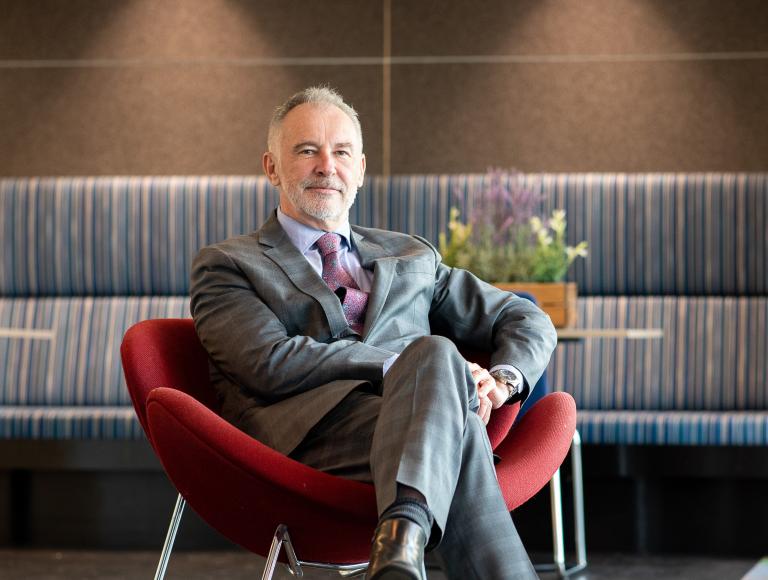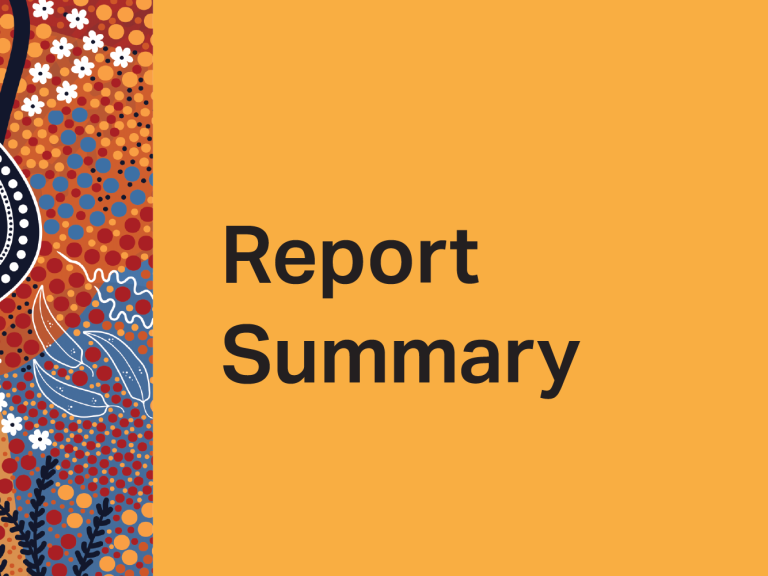APS Commissioner message
It is my pleasure, and my duty under the Public Service Act, to present the State of the Service Report 2023-24.
Another year into my term as APS Commissioner, I have gained an even deeper appreciation for the people, and the work, of the Australian Public Service.
The APS has faced significant challenges, particularly as we responded to the Robodebt Royal Commission, and we have taken system-wide actions to address them.
We are here to do things, but we are also clear about where the boundaries lie.
The policies and services we design and implement must achieve their intended purpose and be ethically sound, as well as legally and technically possible. All of the APS Values matter.
The vast majority of public servants perform their jobs capably and with integrity. Reflecting on our recent lessons learnt in the APS will make us firmer in our resolve to do this.

Australian Public Service Commissioner Dr Gordon de Brouwer
Image: Australian Public Service Commission
The State of the Service Report serves many purposes and audiences.
For the Australian Government, the Australian Parliament, and others with a keen interest in public administration, it provides a wealth of insights into the workforce, capability, leadership and integrity of the APS.
For APS employees, and those considering a career in the APS, it gives a real sense of what we are working on across the service, at the direction of government. It shows the support available to us to deliver outcomes.
We know from the State of the Service roadshows, which explore issues discussed in this report, that staff at all levels are highly engaged in the current and future states of their workplaces.
This year, where it makes sense to do so, we have arranged the content of the report to show information relevant to individual APS staff first, before turning to the broader context of agency-level or APS-wide developments.
There are many areas where the APS is performing well, and others where there are opportunities for further improvement.
One of the Public Service Commissioner’s duties under the Public Service Act is to foster an APS workforce that reflects the diversity of the Australian population.
There is excellent progress with efforts to boost First Nations representation in the Senior Executive Service using innovative approaches to recruitment. At 30 June 2024 there were 85 First Nations SES leaders, an increase from 54 at 30 June 2023, and well on the way to the target of 100 leaders by mid-2025.
The APS Culturally and Linguistically Diverse (CALD) Strategy and Action Plan has been released. It was developed in consultation with stakeholders in the APS and with external experts. It seeks to build cultural capability and increase representation of CALD people in senior leadership in the APS to ensure that we better deliver and that we are a model workplace. It will be implemented over a timeframe of 6 years for all APS agencies, and agency-specific action plans will be integrated into business operations.
The Royal Commission into Violence, Abuse, Neglect and Exploitation of People with Disability Final Report released in September 2023 made it clear there is more we can do in relation to inclusion of people with disability. The recommendations concerning employment in the public sector have been accepted in principle by the Australian Government. The APSC has established a Disability Royal Commission Discovery Project to consider the implementation of these recommendations.
The expanded APS agency benchmarking section in this year’s report shows the position of APS agencies relative to the Australian Government’s APS employment targets and benchmarks. It also includes agency-level performance across APS Employee Census indices.
The successful conclusion of service-wide bargaining in March 2024 marked a significant turning point for the APS, making it possible to start reversing gaps in remuneration and differences in conditions that have grown over decades.
Whole-of-service bargaining has offered agencies significant efficiencies. At 30 June 2024, 103 new APS enterprise agreements were operational, delivering improved pay and conditions for APS employees over the next three years. In 2024, 82% of the APS Employee Census respondents expressed satisfaction with their non-monetary employment conditions, compared with 74% in 2023. This is the highest level ever recorded for the APS overall. There is a strong literature that shows that employee engagement and satisfaction boosts productivity and effectiveness of organisations.
APS employee engagement is also at the highest level, with 91% of 2024 APS Employee Census respondents indicating they are ‘happy to go the extra mile at work when required’ and 87% agreeing they ‘suggest ideas to improve our ways of doing things.’ The majority of respondents to the Census (93%) understood how their role contributes to achieving an outcome for the Australian public, and an increased proportion (87%) felt a strong personal attachment to the APS (84% in 2023).
There are many ways to find like-minded colleagues in the APS. Whether you are looking for others in your profession, scouting for people working on similar challenges or seeking out others you share things in common with, there is likely an APS community for you. These formal and informal networks enrich connections across and within APS agencies. They make an important contribution to building capability, as we share our knowledge with each other. The maturity of the Professions supports and enables public servants to connect and build skills.
I want to thank everyone who has contributed to this year’s State of the Service Report. This includes the agencies who shared their best practice examples, and the teams and individuals who offered their wonderful stories and perspectives for the Serving the Community and Stewardship in Action sections of the report. This helps to communicate the diversity and positive impact of the work the APS does.
I mentioned at the beginning of this message that the State of the Service Report serves many purposes and audiences. A further purpose is an historical one – taken together, these reports are a valuable record of the evolution of the Australian Public Service from Federation to the present day.
For this reason, I am delighted that the APSC is working with the National Library of Australia and the Department of the Prime Minister and Cabinet Library on a stewardship project to bring these reports together as a single digital collection.

Dr Gordon de Brouwer





